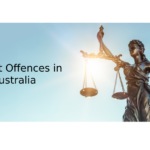Historical Sexual Assaults: Women Cannot Be Found Guilty of Sexually Assaulting Boys

In a decision which shows just how far sexual offence laws have changed over the decades, the highest criminal court in the state, the New South Wales Court of Criminal Appeal (NSWCCA) recently found that a female teacher prosecuted over the sexual assault of teenage male students in the 1970s cannot be found guilty as her conduct did not constitute a criminal offence at the time.
Like most criminal offences in New South Wales, laws that currently apply to unlawful sexual conduct do not generally operate retrospectively – in other words, they do not apply to past conduct that was covered by different laws at the time.
So, for example, the offence of indecent assault applies to unauthorised touching of a person in a sexual manner up until December 2018, whereas the offence of sexual touching applies to similar conduct thereafter.
This means criminal defence lawyers are required to be familiar will laws that presently apply as well as those that applied historically, especially given the fact there is no ‘limitation period’ (sometimes called a ‘statute of limitations’) for New South Wales ‘indictable offences’, which are offences that can be referred to a higher court such as the District or Supreme Court, and generally carry maximum prison sentences of more than two years.
The absence of limitation periods for serious offences means charges can be brought decades after the alleged events.
Here’s an outline of the recent case involving the female teacher, which has some scratching there heads and others enraged over the fact a potential predator cannot be convicted over conduct which would be considered serious criminal conduct today.
The facts
Former Sydney teacher, now 70-year old Helga Lam, was charged with sexual abusing four male students aged between 13 and 16 years old in 1978.
The charges were brought under the now repealed section 81 of the Crimes Act 1900 (NSW), which was the offence of indecent assault on a male.
The matter was brought before the NSWCCA which was asked for clarification about whether the indictment should remain, as there was an open question regarding whether the 1978 offence applied to female perpetrators.
The 1978 offence of indecent assault on male
The 1978 offence of indecent assault on male was outlined in section 81 of the Act, along with buggery offences which were designed to criminalise homosexual acts (whether consensual or not).
The offences sat under a Part headed ‘Unnatural offences’ and were outlined as follows:
79 Buggery and bestiality
Whosoever commits the abominable crime of buggery, or bestiality, with mankind, or with any animal, shall be liable to penal servitude for fourteen years.
80 Attempt to commit buggery
Whosoever attempts to commit the said abominable crime, or assaults any person with intent to commit the same with or without the consent or such person, shall be liable to penal servitude for five years.
81 Indecent assault on male
Whosoever commits an indecent assault upon a male person of whatever age, with or without the consent of such person, shall be liable to penal servitude for five years.
The decision
Applying standard principles of statutory interpretation to the section, the NSW Court of Appeal was forced to conclude that the offence of ‘indecent assault on male’ was designed to cover only the indecent assault of males by other males, not female perpetuators.
In reaching this decision, Justice Meagher noted:
[P]roperly construed, s 81 of the Crimes Act 1900, a provision enacted in 1900, based on English legislation from 1861, and which was repealed and replaced in 1984, does not apply and has never applied to conduct committed by a female upon a male. Section 81 was relevantly directed to the crime of sodomy upon a male and other male homosexual conduct.
On this basis leave to appeal was granted and the indictment against Lam was quashed.
The current offence of sexual intercourse with a child between 10 and 16 years old
The outcome could have been very different for Lam if her conduct occurred in the present day.
For several decades now, the Crimes Act 1900 (NSW) has been clear that both men and women can commit and be victimised for sexual assault.
Under section 66C of the Act, it is an offence for any adult – male or female – to have sexual intercourse with a child between the ages of 10 and 16 years (under 10 being dealt with in a separate offence).
“Sexual intercourse” is defined under section 61HA of the Act as including:
- the penetration to any extent of the genitalia or anus of a person by any part of the body of another person, or any object manipulated by another person; or
- the introduction of any part of the genitalia of a person into the mouth of another person, or
- the application of the mouth or tongue to the female genitalia, or
- the continuation of sexual intercourse.
The following maximum penalties apply to this offence:
- Imprisonment for 16 years if the child is under the age of 14 years at the time.
- Imprisonment for 10 years if the child is over the age of 14 years, but under the age of 16 years, at the time.
Legal defences
A person is not guilty of such an offence if the person establishes that he or she believed the person to be at least of the age of sexual consent, which is 16 years of age (unless the person is under special care in which the age increases to 18 years) and the belief is reasonable in the circumstances.
A further legal defence that applies is duress, which is essentially where a person is forced to commit the offence under imminent threat of serious harm to themselves or someone close to them, and there is no reasonable way to avert that threat.
Going to court?
If you are going to court for a sexual offence, call us anytime on 9261 8881 to arrange a free first conference during which one of our experienced criminal defence lawyers will advise you of your options and the best way forward, and fight for the optimal outcome.






